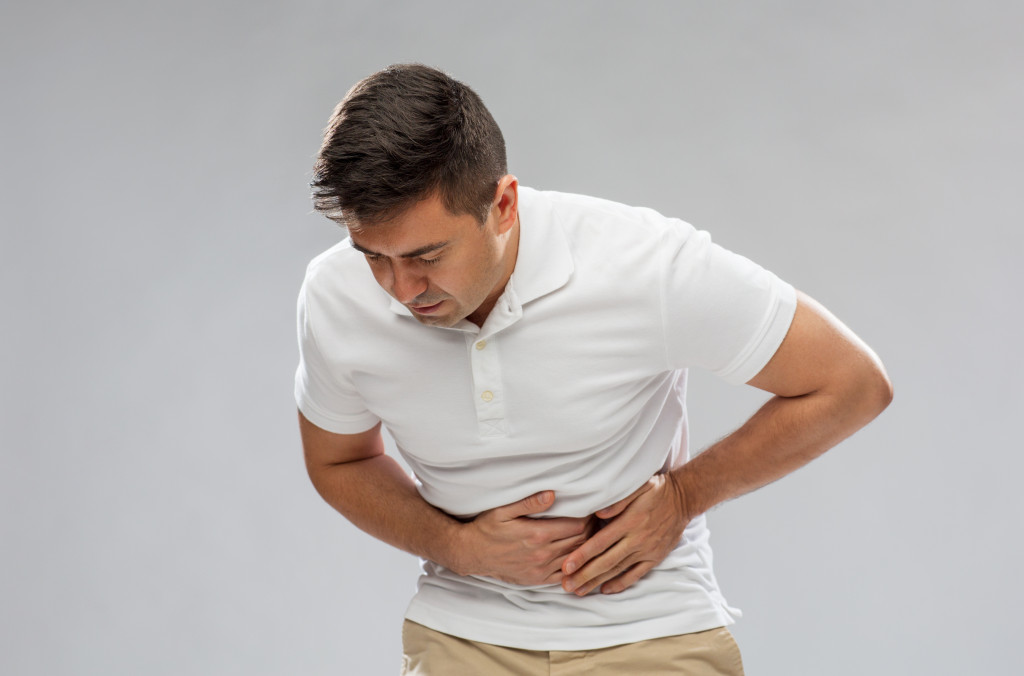- Various factors, including gastrointestinal disorders, infections, diet and lifestyle, medications, and medical conditions, can cause stomach pain.
- Stomach pain diagnosis may involve a medical history, physical examination, and scans such as an endoscopy or blood tests.
- Treatments for stomach pain include antacids and other medications, lifestyle changes, and in some cases, surgery.
- Lifestyle changes to manage stomach pain include avoiding acidic or spicy foods, eating smaller meals more frequently, and more.
- Preventing future episodes of stomach pain involves maintaining a healthy diet with regular exercise daily.
Have you ever experienced stomach pain? It can be quite uncomfortable and sometimes even debilitating. Stomach pain may be caused by various factors, ranging from overeating to an underlying medical condition. Understanding the science behind stomach pain can help you manage it better and seek appropriate treatment. Here’s what you need about it.
Causes of Stomach Pain
There are various causes of stomach pain. Here are some of them:
Gastrointestinal Disorders
Irritable Bowel Syndrome (IBS) is a common gastrointestinal disorder characterized by recurrent abdominal pain and changes in bowel habits. It’s estimated that about three million people have this disease annually in the U.K. Other gastrointestinal disorders such as gallbladder disease, ulcers, and Crohn’s disease can cause stomach pain.
Infection
Bacterial, viral, and parasitic infections can cause a range of stomach-related symptoms, such as nausea, vomiting, diarrhea, and abdominal pain. Infections such as gastroenteritis, appendicitis, and diverticulitis should be treated promptly to avoid complications.

Diet and Lifestyle
Certain foods, such as spicy, greasy, or fatty foods, as well as excessive alcohol, caffeine, and smoking, can cause stomach pain and discomfort. Constant stress and anxiety can also lead to digestive discomfort.
Medications
Certain medications such as aspirin, nonsteroidal anti-inflammatory drugs (NSAIDs), antibiotics, and steroids can cause stomach irritation and pain. An overdose or misuse of medications can also lead to stomach-related complications.
Medical Conditions
Medical conditions such as kidney stones, endometriosis, and hernias can cause severe abdominal pain. These conditions should be treated as soon as possible to avoid complications.
Diagnosis of Stomach Pain
When you experience stomach pain, it’s essential to consult with a healthcare professional. Your doctor will undertake a thorough medical history and physical examination. The medical history helps understand the nature of your pain and may identify any underlying medical conditions.
Additionally, specific scanners are used for this. One essential scanner is an endoscopy. This uses a thin flexible tube with a camera to look inside your stomach. It’s one of the best ways to find all sorts of cancerous tumors in your stomach. Other tests, such as blood work and urine tests, may be conducted if necessary.
Treatments for Stomach Pain
The treatment of stomach pain is based on the underlying cause. Here are some of the best treatments for it:
Antacids and Other Medications
Certain medications, such as antacids, are available to treat stomach pain. They help neutralize stomach acid and reduce symptoms significantly. Other medications, such as H2 blockers, can be prescribed to reduce acid secretion from the stomach.
Lifestyle Changes
Making specific lifestyle changes can help manage abdominal pain. Eating smaller meals, avoiding spicy foods, limiting alcohol consumption, and exercising regularly can all help reduce discomfort. Additionally, managing stress levels and getting enough sleep are essential for digestive health.

Surgery
If your medical condition requires it, surgery may be necessary to treat the underlying cause of your stomach pain. Surgery is usually a last resort when other treatments fail or an emergency requires immediate medical attention.
Lifestyle Changes for Stomach Pain
In some cases, lifestyle changes can help relieve stomach pain. You may try reducing your intake of acidic or spicy foods. Eating smaller, more frequent meals can also help relieve stomach pain. Managing stress through relaxation techniques such as yoga, meditation, or deep breathing may help relieve stomach pain.
Prevention of Stomach Pain
Preventing stomach pain may not be possible in all cases, but some steps can reduce your risk of experiencing it. Maintaining a healthy diet low in acidic and spicy foods can be helpful. Regular exercise and staying hydrated can also help reduce your risk of experiencing stomach pain. If you have a history of stomach pain, avoiding foods and behaviors that cause it, such as drinking alcohol or smoking, can help avoid future episodes.
Stomach pain can be a debilitating experience, but understanding the science behind it can help you manage it better. There are various causes of stomach pain, ranging from gastrointestinal disorders to infection and lifestyle factors. Specific diagnosis and treatments, such as medications or surgery, may be required for severe cases.
Additionally, making specific lifestyle changes can help reduce abdominal discomfort significantly. Lastly, steps should be taken to prevent future episodes of stomach pain, such as maintaining a healthy diet and exercising regularly. If your symptoms persist or worsen despite home care remedies, contact your healthcare provider immediately for proper evaluation and treatment.





